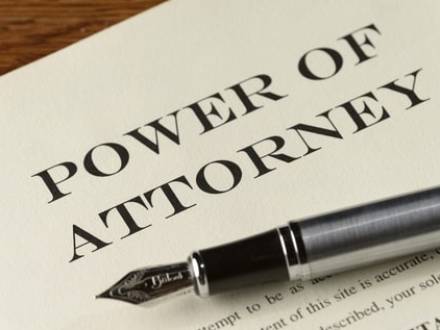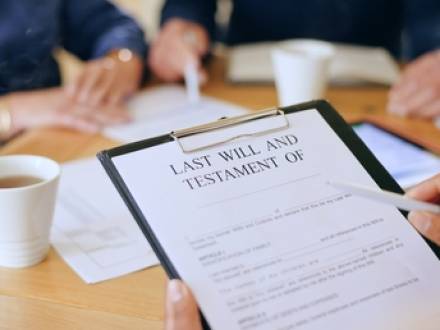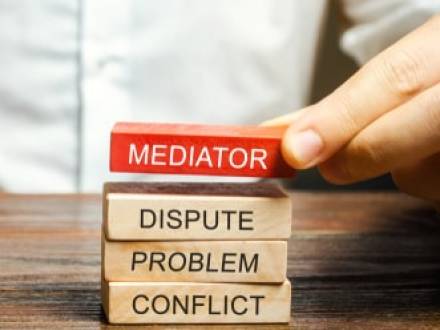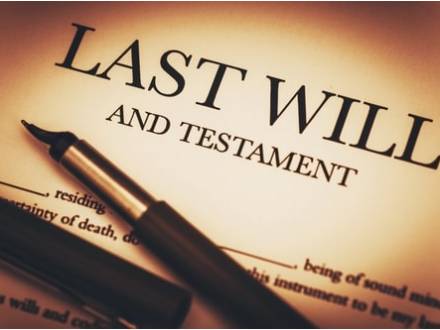Recent Blog Posts
Deficient Disclosures in CA Real Estate Result in Litigation
 One of the most common issues surrounding real estate disputes involves deficient disclosures or the failure to disclose important information about a property during the sale. Sellers are required, under California law, to disclose known material defects. If the new owner discovers serious, undisclosed issues, such as foundation problems, environmental hazards, or significant water damage, litigation may ensue. New buyers may seek compensation for repairs or a loss in property value.
One of the most common issues surrounding real estate disputes involves deficient disclosures or the failure to disclose important information about a property during the sale. Sellers are required, under California law, to disclose known material defects. If the new owner discovers serious, undisclosed issues, such as foundation problems, environmental hazards, or significant water damage, litigation may ensue. New buyers may seek compensation for repairs or a loss in property value.
These undisclosed home issues may have been known to the sellers, who did not disclose them out of fear of losing the sale, or the sellers may have been unaware of the issues. A seller who deliberately misrepresents or fails to disclose crucial information could be sued by the buyers. Legal remedies in these situations may include the seller paying for the repair costs and the depreciated property value. If the misrepresentation was particularly egregious, the buyer could be awarded punitive damages as well.
Establishing and Revoking a California Power of Attorney
 Depending on your unique situation, a California power of attorney can be a useful addition to your estate plan or a standalone document for a specific, limited purpose. A power of attorney document essentially allows you to choose another person to represent you in a specific manner. The person who appoints another person as a power of attorney is known as a principal.
Depending on your unique situation, a California power of attorney can be a useful addition to your estate plan or a standalone document for a specific, limited purpose. A power of attorney document essentially allows you to choose another person to represent you in a specific manner. The person who appoints another person as a power of attorney is known as a principal.
The person appointed to represent the other person is known as the agent or the attorney-in-fact. Some people appoint another person to handle specific tasks, such as financial or medical issues. These issues may be addressed for a predetermined time, such as two weeks, or for an indefinite period to handle ongoing tasks.
An agent can establish a trust but cannot make or change a will on behalf of the principal. The principal can revoke the POA document at any time. If you are considering a power of attorney document, speaking to a knowledgeable Los Angeles, CA estate planning attorney should be your first step.
How Are Boundary Disputes Handled in California?
 Boundary disputes are among the most common types of conflicts arising between neighbors. While such disputes can sometimes be worked out without legal intervention, in most cases, litigation is required to resolve the issue. Boundary disputes occur when a property owner believes a neighbor is encroaching on his or her land.
Boundary disputes are among the most common types of conflicts arising between neighbors. While such disputes can sometimes be worked out without legal intervention, in most cases, litigation is required to resolve the issue. Boundary disputes occur when a property owner believes a neighbor is encroaching on his or her land.
There are a number of legal doctrines that may come into play when resolving boundary disputes, including the most peaceful solution - boundary agreements between property owners through written contracts. It is important to have an experienced Los Angeles, CA real estate dispute attorney on your side for the best possible outcome.
Where Do You Start When There Is a Boundary Dispute?
Perhaps your neighbor has accused you of building your fence on his or her property. Maybe your neighbor just planted an entire row of trees on your property line. Talking to the neighbor can sometimes bring a peaceful resolution, but this is the exception rather than the rule. The first step in resolving a boundary dispute is to obtain a survey of your property. A land survey can run from $800 to $6,000, depending on the size of the property.
What Can I Do About a Sibling Who Is Stealing from the Estate?
 When a parent dies, even if you are an adult, it is a difficult time. But suppose your adult sister moved in with your mother shortly before her death. You now find out that during the time your sister lived with your mother, she convinced her to change her will, naming your sister as the executor. Your sister has had her share of financial troubles over the years, with your mother constantly bailing her out.
When a parent dies, even if you are an adult, it is a difficult time. But suppose your adult sister moved in with your mother shortly before her death. You now find out that during the time your sister lived with your mother, she convinced her to change her will, naming your sister as the executor. Your sister has had her share of financial troubles over the years, with your mother constantly bailing her out.
Now, you believe your sister is using her position as executor to steal from the estate. What should you do? This is a situation that needs to be addressed quickly by speaking to a probate/estate administration attorney. Choosing an experienced Los Angeles, CA estate planning attorney can make a significant difference in the outcome of a situation like this.
The Most Common Causes of Real Estate Disputes
 When you buy or sell a house, closing is usually the end of your involvement with the other party. The seller moves out. The buyer moves in. Neither party ever hears from the other again. However, disputes can and do arise after a real estate transaction has been completed. Unpleasant surprises are sometimes discovered months or even years after a transaction. Issues like boundary disputes, unexpected costly repairs, or easements that were not mentioned in the closing documents might arise long after a sale. Experienced Los Angeles, CA real estate attorney David Schechet has found that mediation is often highly effective in resolving real estate disputes. In many cases, neither party has acted with malice. Especially if attorneys were not involved in the initial transaction, there is a good chance that your real estate dispute is the result of a genuine misunderstanding or one party’s lack of knowledge. Real estate dispute mediation can help you resolve your dispute quickly without the expense of litigation.
When you buy or sell a house, closing is usually the end of your involvement with the other party. The seller moves out. The buyer moves in. Neither party ever hears from the other again. However, disputes can and do arise after a real estate transaction has been completed. Unpleasant surprises are sometimes discovered months or even years after a transaction. Issues like boundary disputes, unexpected costly repairs, or easements that were not mentioned in the closing documents might arise long after a sale. Experienced Los Angeles, CA real estate attorney David Schechet has found that mediation is often highly effective in resolving real estate disputes. In many cases, neither party has acted with malice. Especially if attorneys were not involved in the initial transaction, there is a good chance that your real estate dispute is the result of a genuine misunderstanding or one party’s lack of knowledge. Real estate dispute mediation can help you resolve your dispute quickly without the expense of litigation.
Should an Estate Executor Have a Lawyer?
 Being named an estate executor is an honor. Most people appoint someone they were personally close to and trusted to oversee the probate process. The person who chose you to be her executor trusted you to advocate for her and make sure her will can be carried out after she passed away. You are not only tasked with speaking up for the decedent, but you also owe a fiduciary duty to the beneficiaries. Serving as an estate executor can be both a privilege and a source of stress. If you are not very familiar with probate proceedings, the entire process can seem daunting. Having an experienced Los Angeles, CA fiduciary representation attorney to guide you through your estate administration duties can keep the entire process stress-free for you and all the beneficiaries.
Being named an estate executor is an honor. Most people appoint someone they were personally close to and trusted to oversee the probate process. The person who chose you to be her executor trusted you to advocate for her and make sure her will can be carried out after she passed away. You are not only tasked with speaking up for the decedent, but you also owe a fiduciary duty to the beneficiaries. Serving as an estate executor can be both a privilege and a source of stress. If you are not very familiar with probate proceedings, the entire process can seem daunting. Having an experienced Los Angeles, CA fiduciary representation attorney to guide you through your estate administration duties can keep the entire process stress-free for you and all the beneficiaries.
Resolving Estate Contests Out of Court
 Estate and probate disputes can turn family members against one another and lead to a protracted and costly battle in the courtroom. At a time when emotions are already running high due to the loss of a mutual family member, a disagreement over the estate assets can cause people to behave irrationally or act with unnecessary legal aggression. Will contests can take years to litigate, frequently negating any benefit the winner ultimately receives. Families who are involved in estate litigation against each other often do not reconcile, leading to a permanent rift in the family - which is the last thing the decedent probably wanted. Estate mediation is often a much better, faster, and less expensive solution. You should be represented by an experienced Los Angeles, CA estate contests attorney when you begin mediation.
Estate and probate disputes can turn family members against one another and lead to a protracted and costly battle in the courtroom. At a time when emotions are already running high due to the loss of a mutual family member, a disagreement over the estate assets can cause people to behave irrationally or act with unnecessary legal aggression. Will contests can take years to litigate, frequently negating any benefit the winner ultimately receives. Families who are involved in estate litigation against each other often do not reconcile, leading to a permanent rift in the family - which is the last thing the decedent probably wanted. Estate mediation is often a much better, faster, and less expensive solution. You should be represented by an experienced Los Angeles, CA estate contests attorney when you begin mediation.
What Happens if I Do Not Have an Advance Medical Directive?
 Imagine requiring medical attention and being unable to communicate. Since you would not be able to make decisions about your medical care, it would be left to others to make those decisions for you. Someone you may not want to have authority over your health might be authorized to approve or deny medications, procedures, and surgeries on your behalf. To avoid such cases, California offers a legal tool called an advance medical directive. This is a document that outlines your wishes in the event of incapacitation and is legally enforceable. Failure to have an advance medical directive can lead to negative consequences, so contact a California estate planning attorney about drafting one for you.
Imagine requiring medical attention and being unable to communicate. Since you would not be able to make decisions about your medical care, it would be left to others to make those decisions for you. Someone you may not want to have authority over your health might be authorized to approve or deny medications, procedures, and surgeries on your behalf. To avoid such cases, California offers a legal tool called an advance medical directive. This is a document that outlines your wishes in the event of incapacitation and is legally enforceable. Failure to have an advance medical directive can lead to negative consequences, so contact a California estate planning attorney about drafting one for you.
What Is an Advance Medical Directive?
An advance medical directive is a document that specifies your medical preferences for treatment if you become incapacitated. It is typically made up of two parts:
How Can Mediation Help Resolve Probate Disputes in California?
 When a person dies and leaves behind an estate, it often passes through a process called probate. In this process, a court oversees the distribution of the estate to the heirs or beneficiaries of the deceased person, called the decedent. If the decedent left behind a will, the court will appoint the executor named in the will to ensure it is carried out. If there is no will, the probate court will search for heirs to be beneficiaries of the estate.
When a person dies and leaves behind an estate, it often passes through a process called probate. In this process, a court oversees the distribution of the estate to the heirs or beneficiaries of the deceased person, called the decedent. If the decedent left behind a will, the court will appoint the executor named in the will to ensure it is carried out. If there is no will, the probate court will search for heirs to be beneficiaries of the estate.
Sometimes, beneficiaries may disagree about how the will is being executed or how the estate is being distributed. If these disagreements turn into legal disputes, a judge will likely suggest the parties first try to reach a settlement through probate mediation.
This article will discuss what probate mediation is and how it can help resolve probate disputes. For more details or for legal assistance in any estate planning matter, contact an experienced California estate planning attorney.
What Happens When a Will is Contested?
 A will is a legal document that contains a person’s wishes for when he or she dies. These may include:
A will is a legal document that contains a person’s wishes for when he or she dies. These may include:
- Directions for how to distribute an estate among heirs
- The appointment of an executor to carry out the will
- Preferences for medical care if the person who created the will, the testator, becomes incapacitated
Wills are legally binding and must be honored when they come into effect. However, sometimes a will can be contested. This article will discuss the grounds for contesting a will and the process for doing so. For more details or questions regarding will contests, consult an experienced California estate planning attorney.
What Are the Grounds for Contesting a Will?
Being left out of a will is not a valid reason to challenge it. Justifiable reasons to contest a will may include the following:
- Lack of testamentary capacity: A will is only valid if the testator is of sound mind. If the testator did not have the mental capacity to make sound decisions at the time the will was drawn up, the will can be challenged.


 800-282-4731
800-282-4731


